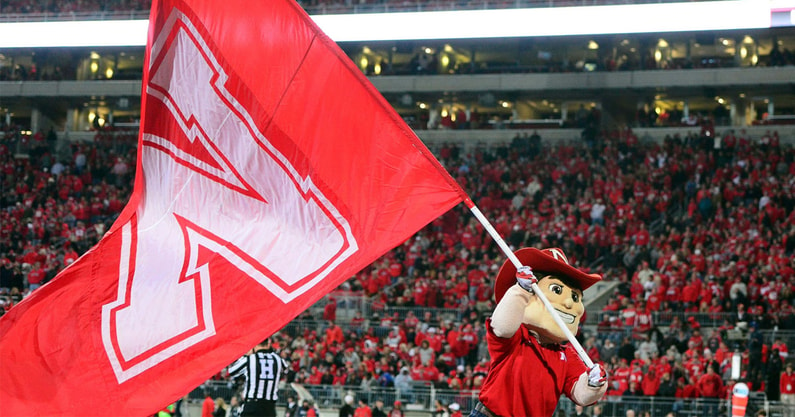Nebraska Gov. Pillen officially signs NIL bill into law

Nebraska Gov. Jim Pillen stopped by the University of Nebraska on Friday, officially signing Legislature Bill 1393 into law, allowing institutions to compensate an athlete for the use of their NIL if permitted or authorized by the policy of an athletic association or school policy, a court order, or a settlement agreement.
The signing comes as schools begin to prepare for the impact of the the multibillion-dollar House settlement. Schools will have the opportunity to opt-in to a revenue-sharing agreement, with the option to share roughly $20 to $22 million per year with players.
First introduced in January, Pillen approved the legislation in April and officially signed the bill on Friday with Nebraska football coach Matt Rhule, basketball coach Fred Hoiberg and women’s basketball coach Amy Williams. New athletic director Troy Dannen also attended the event.
Pillen played football for the Huskers from 1975 to 1978. The signing of Legislature Bill 1393 allows schools to assist athletes with NIL deals through legal support and access to department resources, such as team facilities, equipment, social media and photographers.
“This place changed my life and I’ll do anything for this program,” he said on social media. “Anytime. Anywhere.”
Top 10
- 1New
Connor Shaw update
Positive update on SC great
- 2Hot
Wofford players suspended
Benefits as low as $84
- 3Trending
Urban Meyer
Nico-Aguilar worst trade ever
- 4
Arch Manning
Opponents dish on struggles
- 5
CFB headed to London
Kansas vs. Arizona State
Get the Daily On3 Newsletter in your inbox every morning
By clicking "Subscribe to Newsletter", I agree to On3's Privacy Notice, Terms, and use of my personal information described therein.
The bill also states athletes should not be qualified as employees based “solely on the fact that the student-athlete earns compensation for the use of the student-athlete’s name, image, or likeness rights or athletic reputation, or is engaged in name, image, or likeness activities pursuant to the act.”
Notably, the bill also includes a provision that NIL contracts between companies and athletes that are shared with the school shall remain private and confidential. This has become a popular trend to protect details of deals.
Of the $2.77 billion expected to be paid in back damages to former athletes as part of the House settlement, the NCAA is expected to be responsible for 40% of the payout. The other 60% will come from a reduction in school distributions.